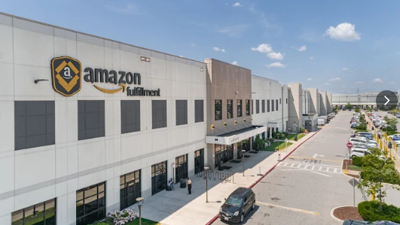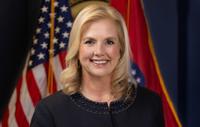
Amazon’s Baltimore fulfillment center
SEATTLE - Amazon is stuck with rulings against it in the Federal Trade Commission's lawsuit alleging customers were tricked into enrolling in the Prime program.
Three decisions have gone against the retail giant in Seattle federal court, including Judge John Chun's refusal to toss the case entirely. But Chun said July 25 there is no reason to allow Amazon to appeal his findings to the U.S. Court of Appeals for the Ninth Circuit while a scheduled trial date in September is getting closer.
"If the Court granted the motion, it is unlikely the parties would complete appellate briefing by the trial date, much less receive a ruling from the Ninth Circuit," Chun wrote.
The FTC's Prime case made far fewer headlines than another lawsuit filed by the FTC during the Biden Administration that alleged antitrust violations, but the stakes are still high.
The FTC alleges violations of the Restore Online Shoppers' Confidence Act, a 2010 law that targets so-called "negative option" transactions. Amazon has said the FTC had never before used ROSCA in this way and sought memos through the years it hoped would show it was not on "fair notice" that it could face ROSCA liabilities.
Chun denied that request in August. He cited a previous case from Texas that found "regulated parties have no access to an agency's internal deliberations; thus, these communications should have no bearing upon whether the agency has given fair notice."
Chun also denied motions to depose the FTC on official public statements and compel production of internal discussions on ROSCA.
Amazon sought:
-FTC internal memos reflecting the agency's interpretation over time of ROSCA, negative options and "dark patterns";
-Documents relating to the FTC's ongoing negative option rulemaking that were created after June 21, the day it sued Amazon;
-Documents relating to the FTC's 2009 report "Negative Options - A Report by the staff of the FTC's Division of Enforcement" and a related workshop; and
-Documents relating to FTC press releases about the case.
Part of Amazon's defense is the FTC did not provide fair notice about what Amazon says are changing requirements under ROSCA and that the company lacked "actual knowledge" that its practices could be construed as illegal.
"Here, where the FTC both claims that the operative standards are clear enough to support its claims while publicly asserting they are ambiguous and in need of revision, the imperative of uncovering these plainly relevant and responsive materials is particularly acute," Amazon argued.
The lawsuit alleges Amazon tricks shoppers into enrolling in Prime then makes it difficult for them to cancel. Former FTC chair Lina Khan was Amazon's Public Enemy No. 1.
Her long-planned antitrust lawsuit targeted Amazon's policy that third-party vendors can't charge less for their products elsewhere, even though Amazon gets a percentage of their sales made on its site.
Chun is also handling that case. Khan, whose anti-business efforts included a ban on noncompete employment clauses that was blocked by multiple courts, has admitted she shopped for diapers on Amazon.
Amazon says she is attacking the "very essence of competition." She also pushed antitrust claims against Facebook owner Meta, though that company says the FTC can't even show what "market" has been manipulated.







